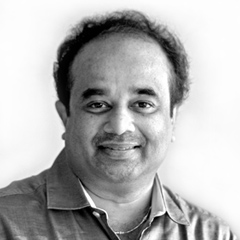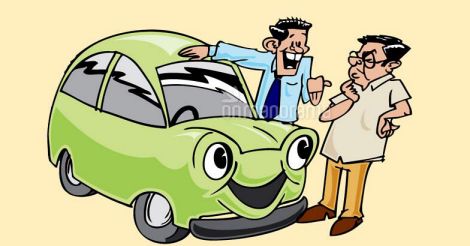When I went to a car workshop recently, it had only a chief mechanic and his assistant. I heard the sound of only small repairs there, which was once a famous service centre in the city. The mechanic is old, and he complained that it was hard to find workers. People want only executive jobs with monthly pay. Mobile and insurance marketers need plenty of youth. And no one gets paid below the minimum wage of Rs 7,500 set by the labour department. At the workshop, the job is hard and pay is less.
Not only that, most people repair vehicles only at service centres run by dealers. Workshops that once repaired Fiat, Ambassador and Maruti cars are dwindling. The days of getting a quick repair done by a mechanic for a pittance on the way are passé. Now the trend is to take cars to super speciality service centres for observation and intensive care that last hours.
As time passes, business evolves. In the seventies, there was a place in Kochi where mechanics went on pilgrimage. It was the spare parts showroom of Popular. Mechanics from many districts used to go there to buy parts, sometimes with vehicle owners. It used to send customers out before closing for lunch break. There would still be a queue when the shop closed at 7pm. Those who couldn’t buy parts one day booked rooms in lodges and queued up early next morning.
If Popular had continued like that, it would have been outdated like workshops. It might sound surprising, but today Popular has no spare parts showroom. What happened to spare parts business? The practice of using the same car for 20 or 30 years has changed. Today a model changes after four or five years, and with that, its parts become junk. Not only that, parts are now part of service centres and are not bought from outside. Only parts of commercial vehicles such as buses and lorries are sold in shops.
Popular changed track in the eighties and became Maruti’s first dealer in Kerala in 1984. Today, it has nine Suzuki dealerships and Tata’s truck dealership and a turnover of Rs 2,500 crore. If it had not changed with time and not taken the decision to sell vehicles, the company says it would have been a washout. Popular’s transformation is a case study at IIM Ahmedabad and Harvard Business School.
At the same time, what happened to workshops? Technology changed so much that old mechanics couldn’t handle it any more. Their next generation was not keen on workshops. Once the mechanic died, the workshop was shut. Few youth knew the job. Big dealers teach youth to repair body and paint vehicles at their training centres.
Any business will change completely in 20-25 years. If it does not change, it dies. We have to wait and see what will happen to today’s vehicle dealers. Driverless cars are in trial stage. Battery-powered cars and charging facilities are becoming popular in many countries. A battery that can power a vehicle for 500 kilometres if it is charged for 10 minutes has been made. The price of petroleum is falling, and cycling is back in vogue. Cycle tracks are being laid in big cities. Cities celebrate car-free days. Who knows what is in store?
Tailpiece
In many places, when a mechanic dies, his family gets a gold mine: the place where the workshop stood for decades! Land by the side of the road is pricey. Many workshops have now turned into vehicle showrooms.


























Disclaimer
The comments posted here/below/in the given space are not on behalf of Manorama. The person posting the comment will be in sole ownership of its responsibility. According to the central government's IT rules, obscene or offensive statement made against a person, religion, community or nation is a punishable offense, and legal action would be taken against people who indulge in such activities.